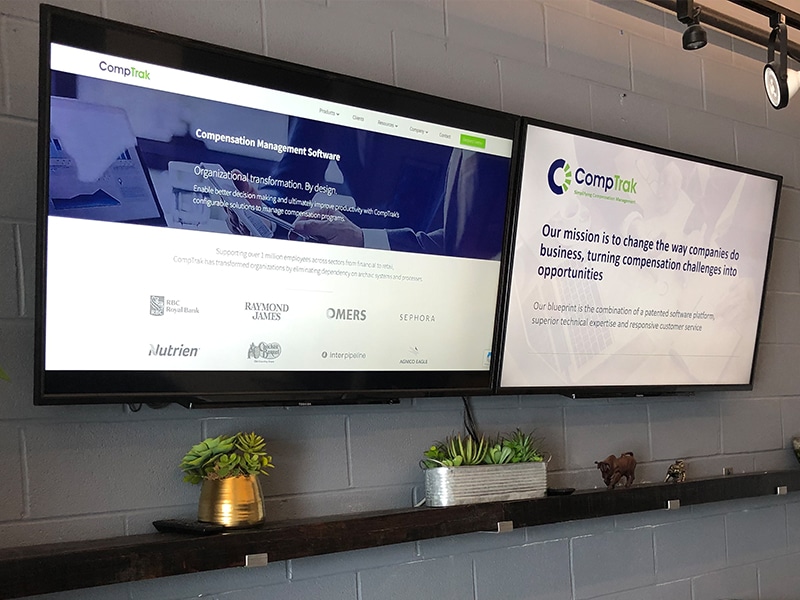Economic uncertainty, remote work, and quiet quitting are all recent developments requiring organizations to innovate and reevaluate their compensation programs in order to win the talent war. As a compensation management provider, we are on the front lines of helping organizations navigate and implement those changes. Here are a few of the trends that have been picking up steam over the past year.
Personalized compensation and employee choice
In this era of instant gratification, employees expect organizations to offer compensation that is distinctive and tailored to their needs. Considering this employee behavior, organizations need to align their strategy to accommodate employee expectations.
The personalization of compensation is defined as the practice of tailoring compensation packages to meet individual needs and giving the employee the ability to influence those factors. Organizations are increasingly offering employees more choice between items such as a compensation split between base salary vs equity, or how they would like to receive incentive bonuses (cash, equity, or paid time off). Personalization goes beyond the compensation trend and is evident in benefits and other perks. Employees can access and choose benefits that meet their current circumstances.
The concept of personalization sounds very enticing, but organizations need to be aware of the potential administrative burden they may inherit. Successful implementation requires technology to play a big role in this endeavor. A robust platform provides the self-serve capability and can be used to provide comprehensive descriptions ensuring employees fully understand the implications of the decisions they are making. It allows HR teams to drastically reduce manual administration work. In all this, the importance of communicating the total compensation plan to employees in a safe secure way through total rewards statements cannot be stressed enough.
Strategic alignment with management by objectives
The prevalence of remote and hybrid working models has brought on new challenges for many organizations. With the absence of people working in the confines of an office, more emphasis needs to be placed on keeping teams aligned and working towards common goals.
Management by Objectives (MBO) is a strategic performance-based approach in which employees are aligned to company, departmental, team, and individual goals. The performance management framework sets, monitors, and scores an employee’s performance against those organizational goals giving you quick feedback on the direction and performance of individuals and your team.
Buy-in to the program must come from the executive level and cascade down to the front-line workers. If implemented correctly, it not only aligns your teams but showcases to everyone how their contributions support the overall organization’s goals. The right Performance Management software can help bring simplicity to the day-to-day measurement and tracking ensuring transparency, thus enabling teams to row in the same direction as their colleagues.
LTIP for all your employees
Long-Term Incentive Plans (LTIPs) have long been a strategy to attract and retain executives and senior leaders. Designed to vest and payout over extended periods of time, it serves as a critical tool to help retain employees. There are many different types of long-term incentive programs from restricted or performance stock units to options, stock appreciation rights, or deferred cash. The compensation trend of expanding LTIP partcipation is continuing with many organizations now offering equity-type programs to all their full-time employees. Building a culture of ownership is not only rewarding but also useful to attract top talent and keep them engaged.
While the intention is good, many organizations have learned the hard way that communication is incredibly vital when expanding participation. Entry-level positions and lower levels of your organizational hierarchy may not be familiar with long-term incentives and require extensive education to understand the mechanics and intricacies. Clear and concise communication goes a long way to ensuring your employees see the potential value of these awards.
Use of data and insights in compensation
Given how digitalization is affecting all aspects of human resources, the use of big data and machine learning in HR is on the rise. With employees serving as one of the most significant entries on your P&L, optimization has the potential to save organizations lots of money. Businesses can now gain access to key insights to better understand high turnover rates, market comparisons, and internal pay fairness.
People analytics is also being used to enhance employee experience and align compensation with business performance. Predictive models help in gathering information as diverse as skill gaps, potential workforce costs, high-risk employees to market fluctuations, and rising hot job sectors.
Where you work from matters
Given how hybrid and remote work models are here to stay, organizations are changing the methodology to calculate pay for employees distributed across geographies. Companies consider an array of factors to determine an employee’s compensation plan – experience, education, talent scarcity, and market rates. With many employees working from home and in vastly different geographies, organizations must now look at how to compensate fairly across their workforce.
A geo-differentiated pay model has many benefits for the company while accommodating and promoting a fully remote work environment. It expands your ability to hire talent from a larger geographic expanse and to align salaries to the cost of labor in different markets. Compensation management software helps map those employees to their respective regions and understand the potential differences in pay scale.
It is important for forward-thinking organizations to have a strategic approach to compensation that aligns pay with performance and promotes transparency and fairness. Whether the next year brings forth a recession or economic rationalization, the immediate future will put a strain on most companies and HR departments. Your next move will be crucial to staying relevant and a great opportunity for innovators to take advantage. Each organization should look at its internal culture and determine what is right for them accordingly. There are many options to address the changing landscape and each one requires a thoughtful approach.
CompTrak’s compensation consultants work very closely with all its clients to help strategize and facilitate these types of changes to compensation. Our highly configurable compensation platform enables companies to adapt, innovate and ensure their compensation strategy is delivering on all fronts.














